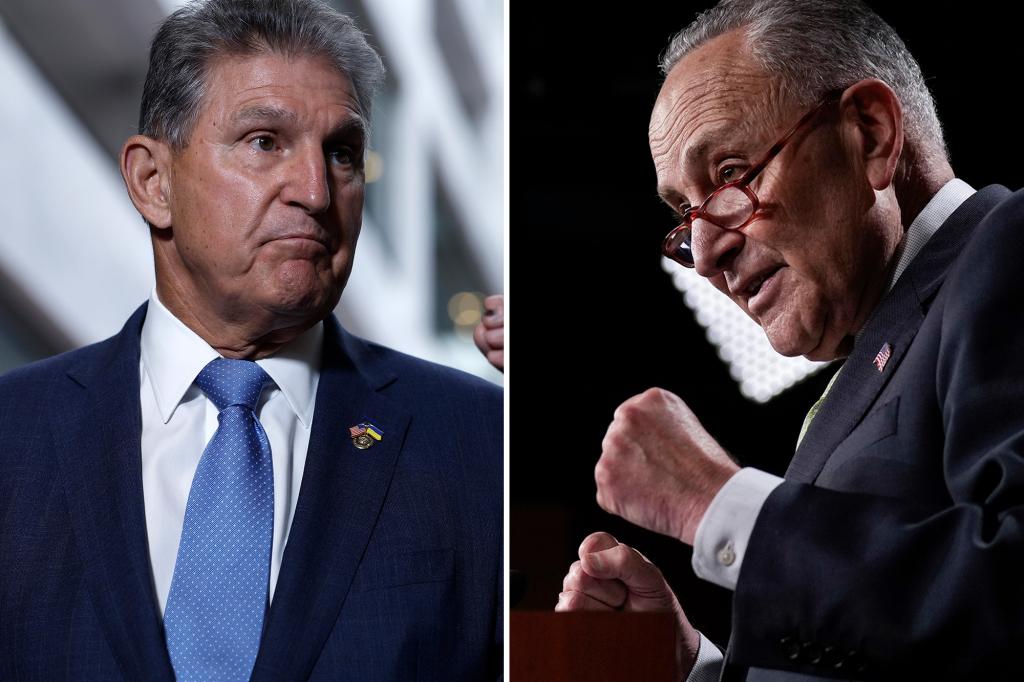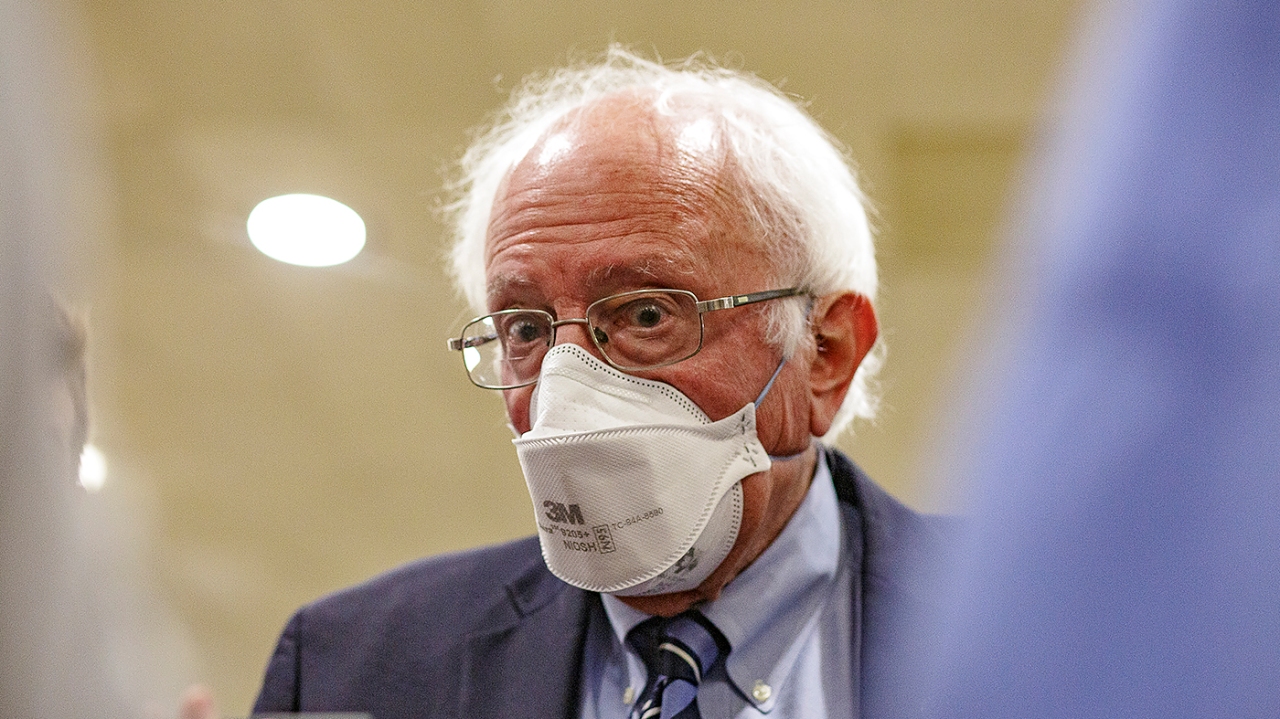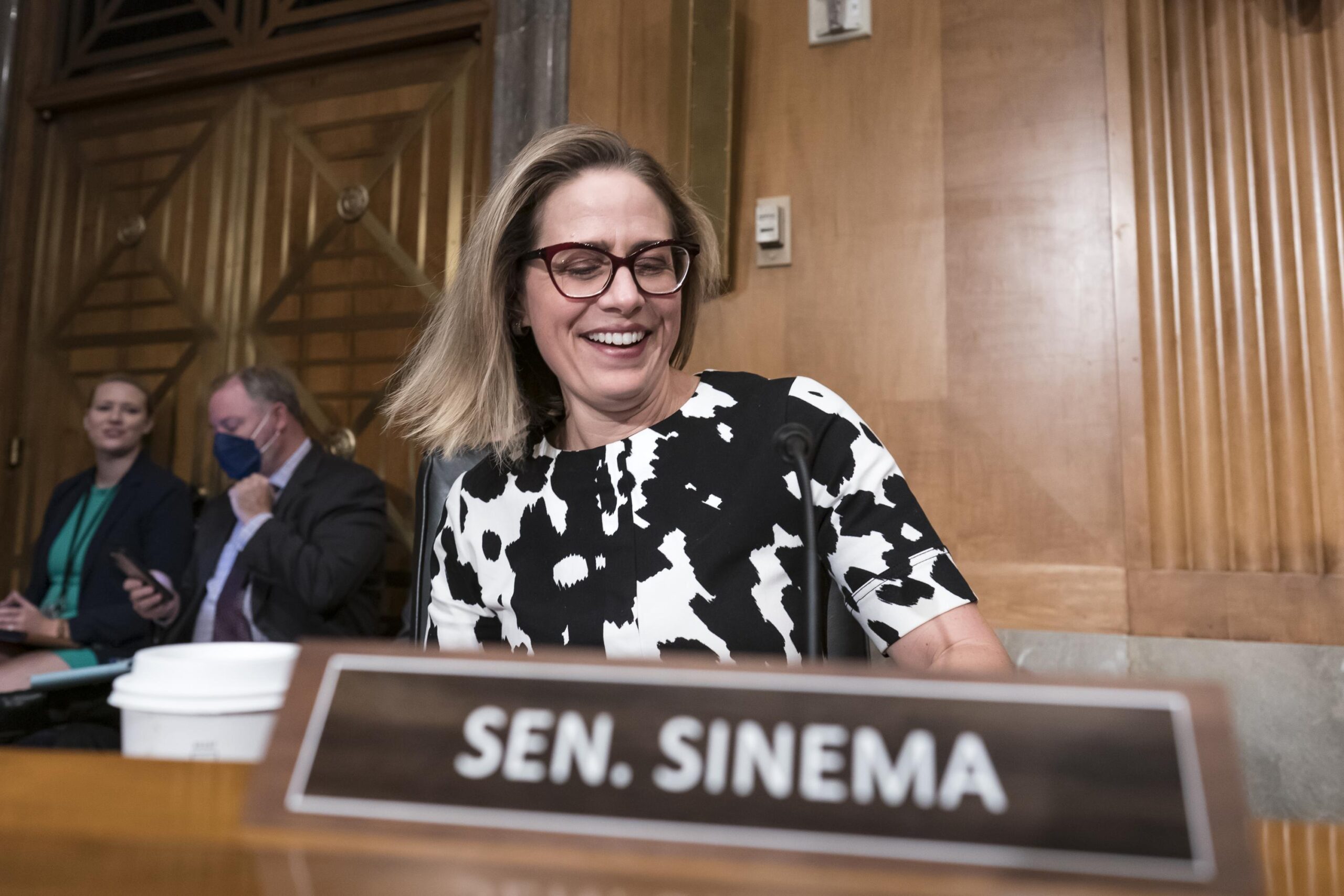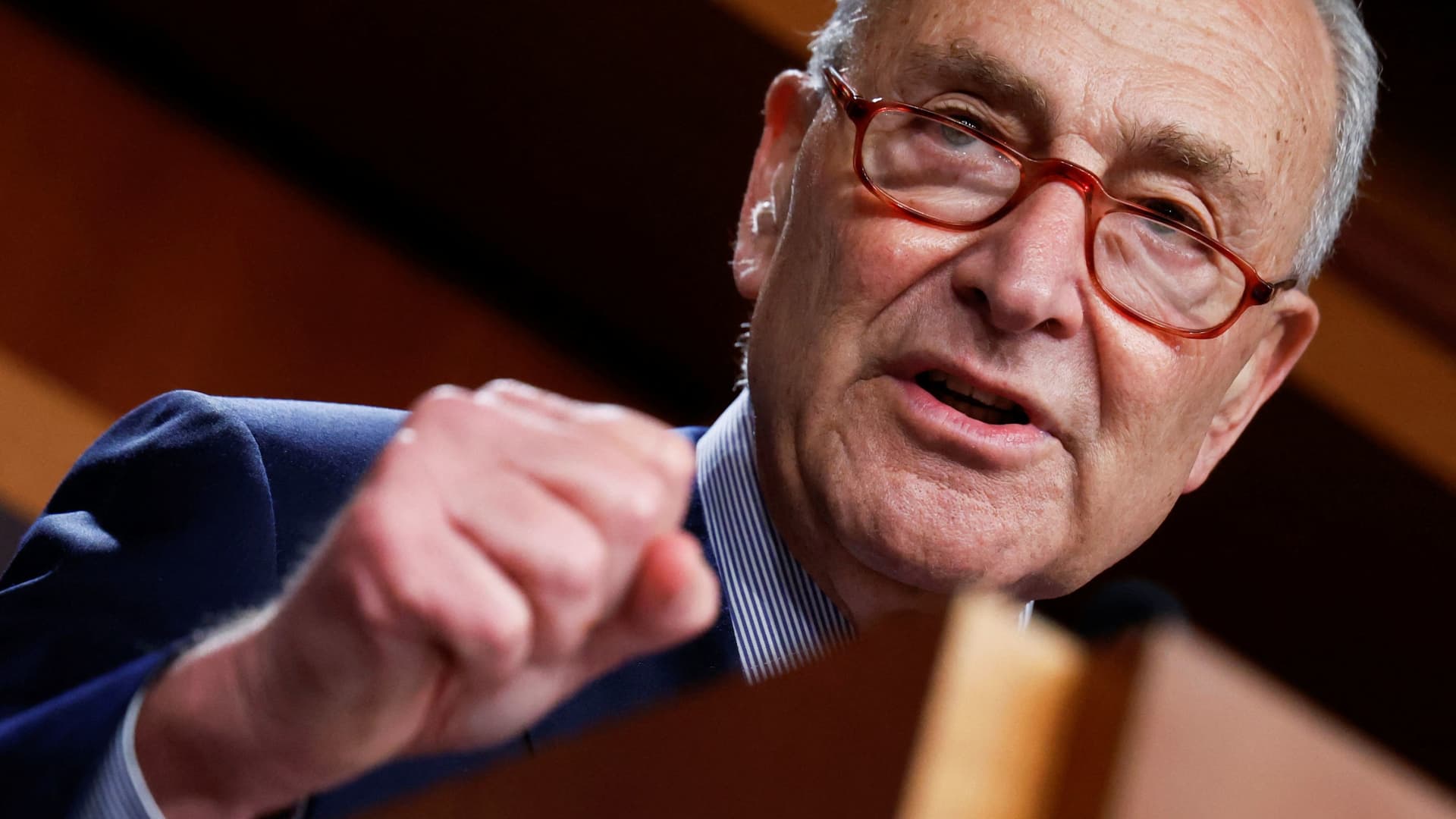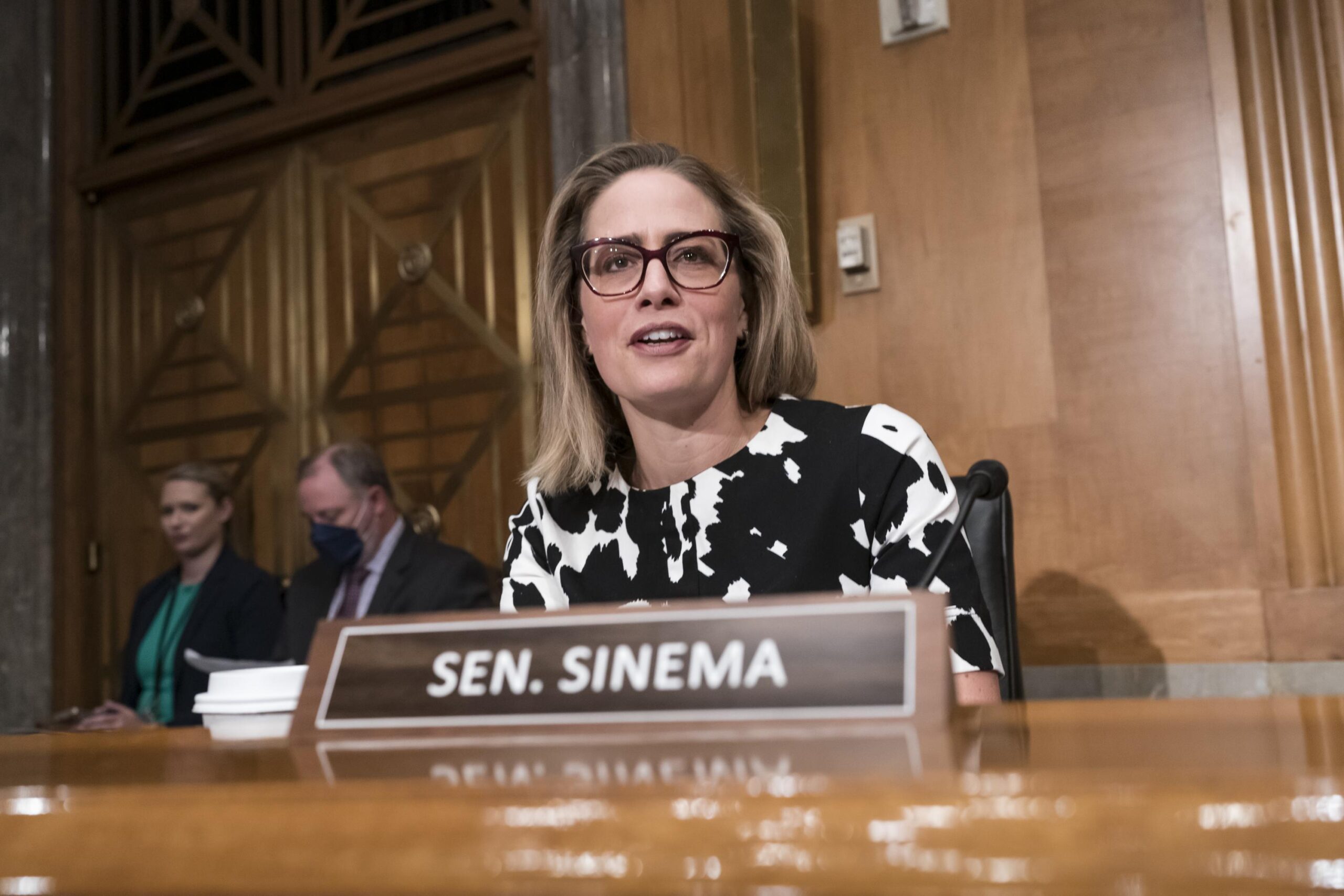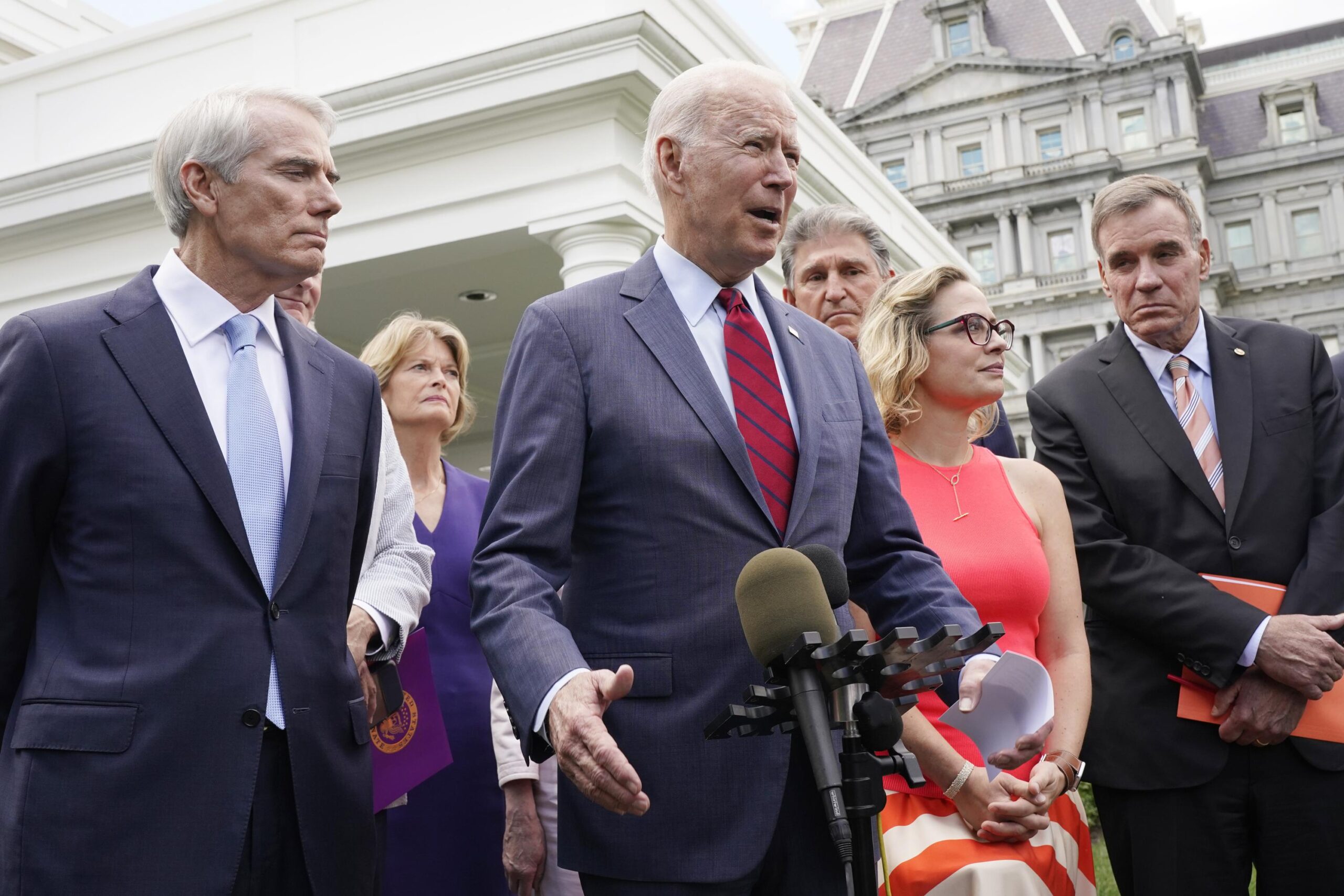US Senator Kyrsten Sinema (D-AZ) waits for an elevator to go to the Senate floor at the US Capitol in Washington, US August 2, 2022.
Jonathan Ernst | Reuters
Long before Sen. Kyrsten Sinema, D-Ariz., held up a massive spending bill that promised to create jobs, invest in clean energy and tax the rich — delivering on some of President Joe Biden’s and the Democratic party’s top campaign promises — those working at Wall Street investment firms had donated millions to the freshman senator’s campaign.
One of her main objections was the bill’s so-called carried interest tax provision — which would have closed an arcane loophole in tax law that allowed hedge fund managers, law firm partners and private equity executives, among others, to pay significantly less taxes than ordinary workers.
Closing that loophole, which was estimated to raise $14 billion in tax revenue over the next decade, was supposed to help pay for $433 billion in spending on climate and health initiatives.
To get Sinema’s vote, and the bill passed, Senate Majority Leader Chuck Schumer said Democrats had “no choice” but to drop that provision from the broader Inflation Reduction Act. The bill instead imposes a 1% tax on all corporate share buybacks along with a minimum corporate tax rate of 15% on companies with more than $1 billion in revenues. The massive spending-and-tax package squeaked through the evenly divided Senate 51-50 on Sunday with Vice President Kamala Harris’ tie-breaking vote. It’s expected to pass the House later this week.
American Investment Council
As Biden rallied support in the Senate just over a year ago to close the loophole, the head of the trade group representing the world’s largest private equity firms began cranking up the pressure on Sinema and fellow Arizona Sen. Mark Kelly, who is also a Democrat.
“Arizona Sens. Kyrsten Sinema and Mark Kelly will be critical voices and votes in the upcoming infrastructure debate,” Drew Maloney, the president and CEO of the American Investment Council, wrote in an op-ed published by an Arizona news outlet. The trade group represents some of the world’s largest private equity firms, including Blackstone, Apollo Global Management, Carlyle Group and KKR. “I urge them to continue supporting private investment’s role in helping small businesses here in Arizona and across the country,” he added.
One of the group’s top priorities was then, and is now, to preserve “carried interest capital gains and prevent elimination of interest deductibility.”
“Our team worked to ensure that members of Congress from both sides of the aisle understand how private equity directly employs workers and supports small businesses throughout their communities,” Maloney said in a statement to CNBC. “Our advocacy helped prevent punitive tax increases that would make it harder for investors to continue to support jobs, small businesses, and pensions in every state.”
Sinema’s been fighting to help preserve the loophole since at least last year when she told Democratic leaders she opposed closing the carried interest tax break. It was subsequently stripped out of a House bill, according to NBC News.
Sinema’s opposition, along with a bevy of concerns from Sen. Joe Manchin, DW.V., helped sink a much more sprawling version of the bill, which was significantly back to win over the two moderate Democrats.
‘What’s best for Arizona’
“Senator Sinema makes every decision based on one criteria: what’s best for Arizona,” Sinema’s spokeswoman Hannah Hurley told CNBC in an email. She said Sinema has been clear for over a year that she will only support tax reforms and revenue options that support Arizona’s economic growth and competitiveness. Sinema believes that “disincentivizing” investments in Arizona businesses would hurt the state’s economy and ability to create jobs, Hurley said.
In the weeks before Sunday’s vote, Sinema’s office was inundated with calls from lobbyists representing hedge funds, private equity firms and other money managers arguing against closing the carried interest tax loophole, according to people familiar with the matter. In the runup to last week’s deal, Ella’s senator and her staff fielded numerous in-person meetings with the industry, said some of the people familiar with these meetings, asking not to be identified to speak freely about private efforts to connect with Sinema .
Since she was elected to the Senate in 2018, Sinema has been a sympathetic ear to the industry. Last September, she huddled for a lunch meeting at a Philadelphia restaurant with Michael Forman, who manages at least $34 billion as CEO of a Philly-based investment firm FS Investments, and one of his executives, according to people familiar with the lunch. Forman did not return emails and calls seeking comment.
“Every single major industry that is not supportive of what’s in there is meeting with Sinema and she is meeting with anybody and everybody,” a lobbyist representing some of the biggest investment firms in the world told CNBC before Schumer announced late Thursday that Democrats agreed to drop the carried interest provision to get her vote. Sinema said she would work separately “to enact carried interest tax reforms.”
Private equity donors
Even before Sinema was elected to the Senate in 2018, she supported private equity investors as a member in the House of Representatives. In 2016, Sinema said the industry provided “billions of dollars each year to Main Street businesses,” according to the New York Times.
Sinema won a coveted seat on the powerful Banking Committee and made quick work networking with — and raising donations from — the industry she would oversee. Since the start of the 2018 election cycle, she’s raked in at least $2 million from the securities and investment industry — outraising Senate Banking Chairman Sherrod Brown’s $770,000 in industry donations over the same time, according to Federal Election Commission data analyzed by the nonpartisan campaign finance watchdog OpenSecrets. Both Sinema and Brown, D-Ohio, are up for reelection in 2024.
Sinema’s take includes $10,000 in campaign donations from the American Investment Council’s political action committee, half of which was donated to her campaign after Maloney’s op-ed ran last year.
Employees at private equity firms Kohlberg Kravis Roberts, the Carlyle Group and Apollo Global Management donated more than $95,000, combined, to Sinema from the 2018 election through the current 2022 election cycle, according to campaign finance data.
That includes $11,600 in combined donations from KKR co-founders Henry Kravis and George Roberts, according to Federal Election Commission filings. Records show that Carlyle’s and Apollo’s political action committees also donated a combined $15,000 to Sinema’s reelection campaign.
Representatives for KKR and Carlyle declined to comment. Representatives for Apollo and Blackstone did not return requests for comment.
‘Hats off to the P/E lobby!’
The reason why some of Wall Street’s wealthiest money managers want to preserve the carried interest loophole is because it taxes their profits at a lower rate than the ordinary income. Instead of paying the standard individual income tax rates of up to 37% for individuals who earn more than $539,900 ($647,850 for married couples filing jointly), carried interest is taxed at the capital gains rate, which is usually around 20% for high-income earners, as long as the investment is held for at least three years.
Democrats wanted to make executives hold those investments for at least five years to get the better rate. The industry defends the carried interest tax break, saying it helps preserve investments that benefit small businesses. Critics say it’s just a massive tax break for the rich.
Lloyd Blankfein, the former CEO of Wall Street investment bank Goldman Sachs, mockingly congratulated the private equity industry on Twitter after the carried interest provision was stripped from the Inflation Reduction Act: “Hats off to the P/E lobby! After all these years and budget crises, the highest paid people still pay the lower capital gains tax on earnings from their labor.”
.

